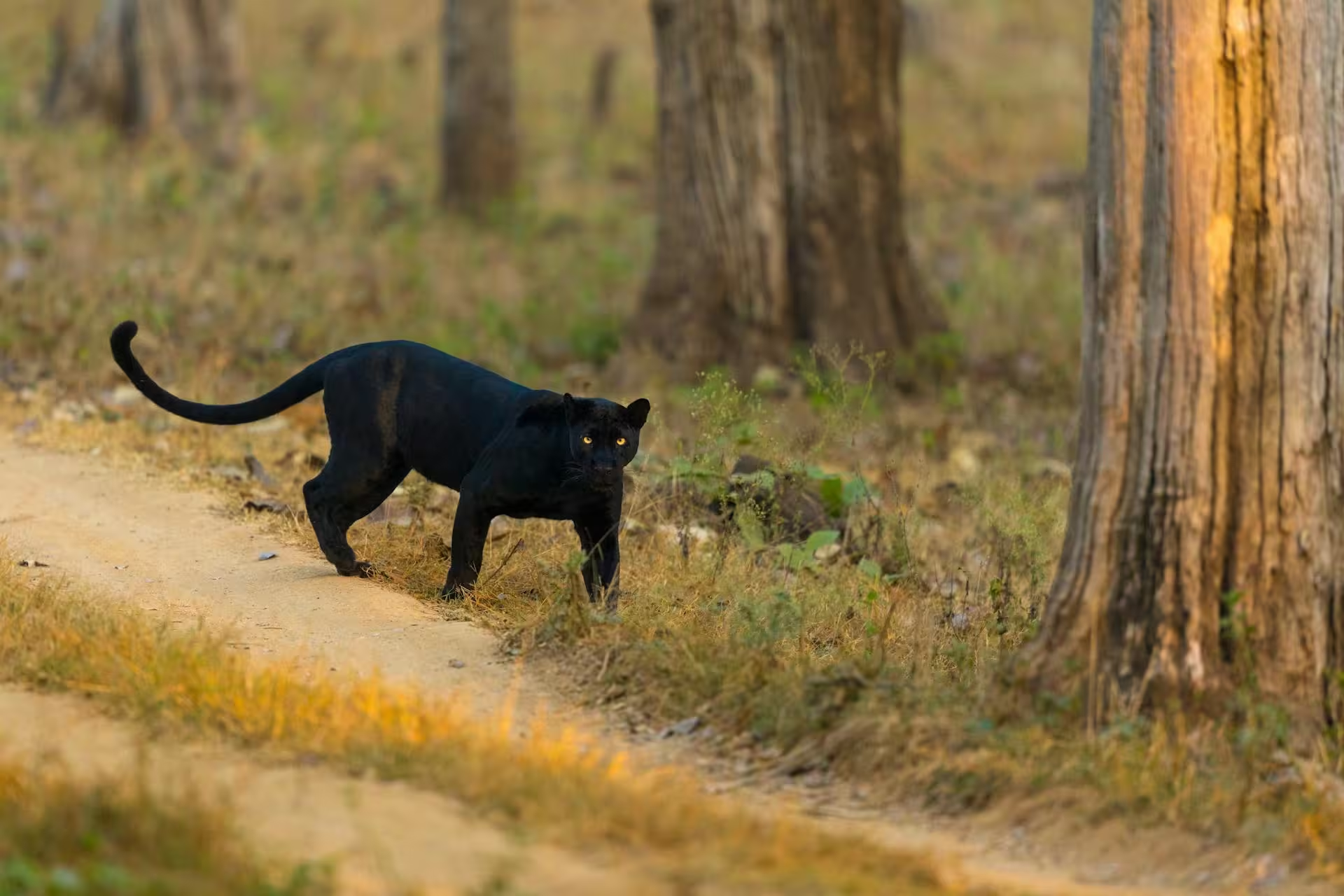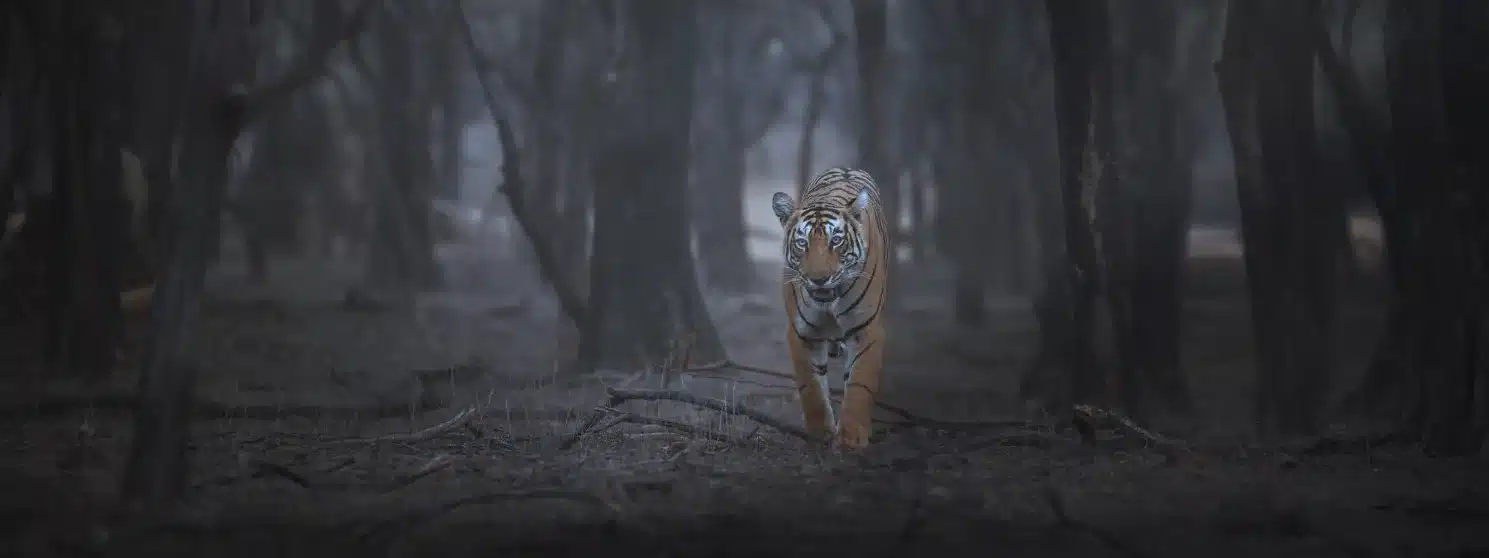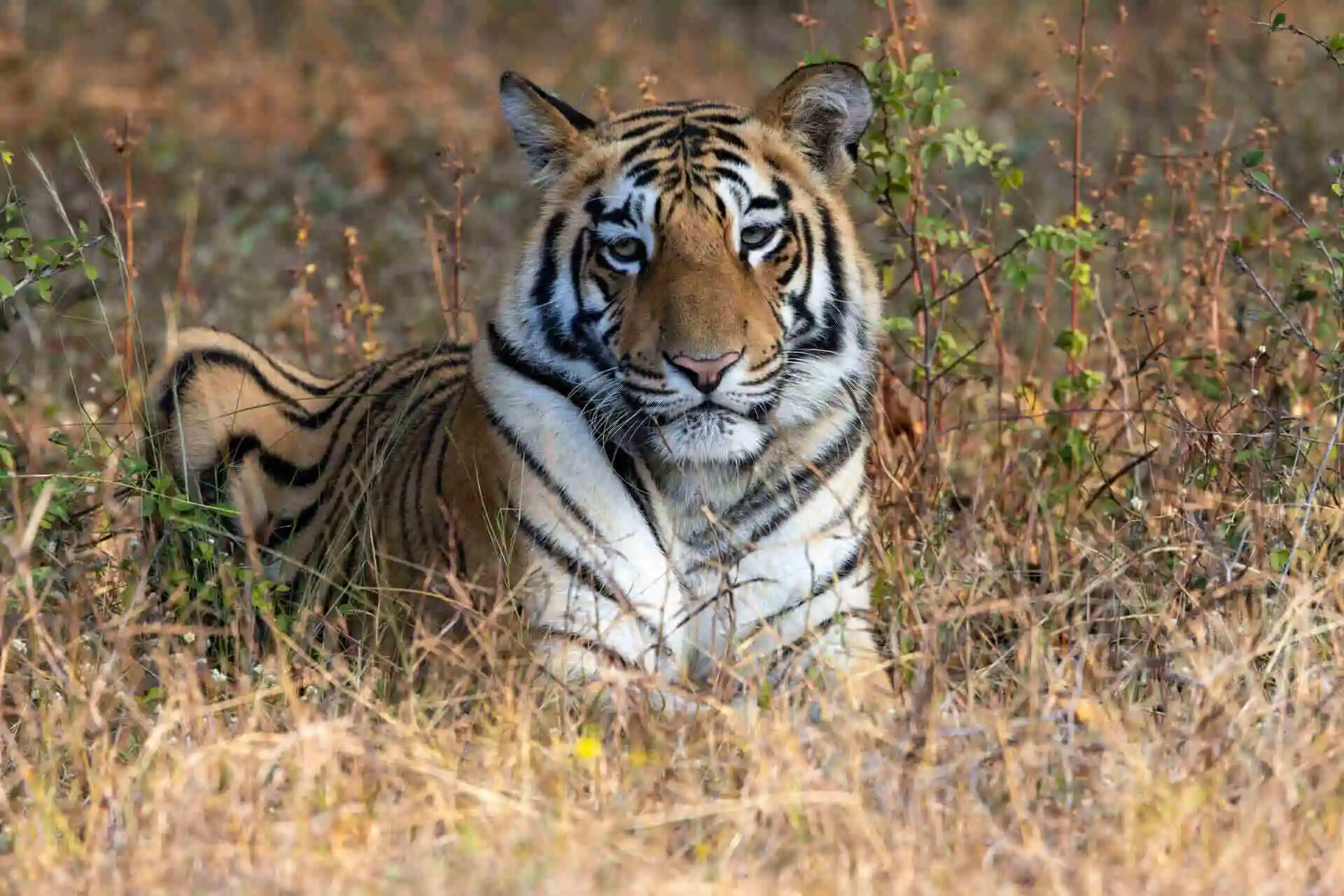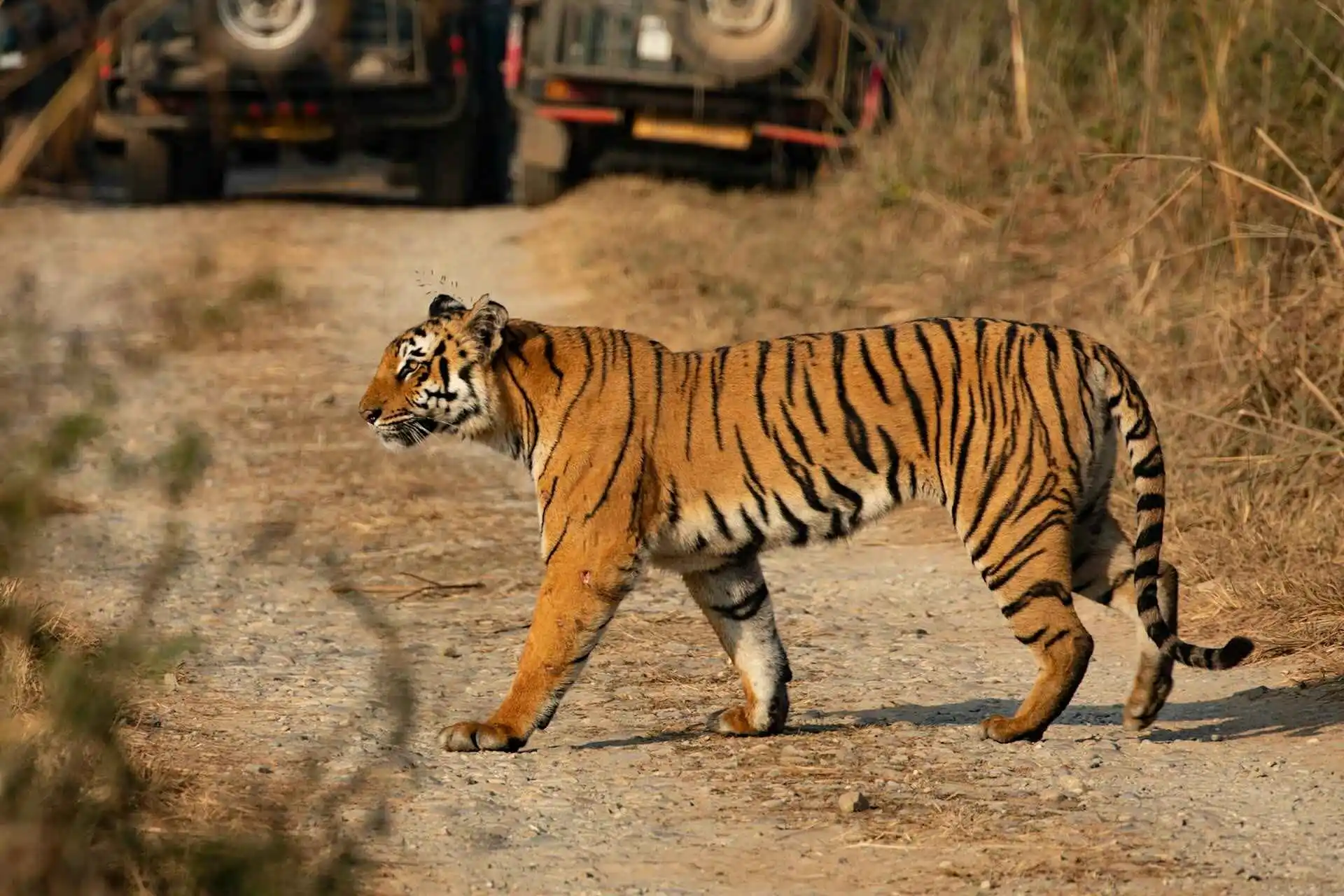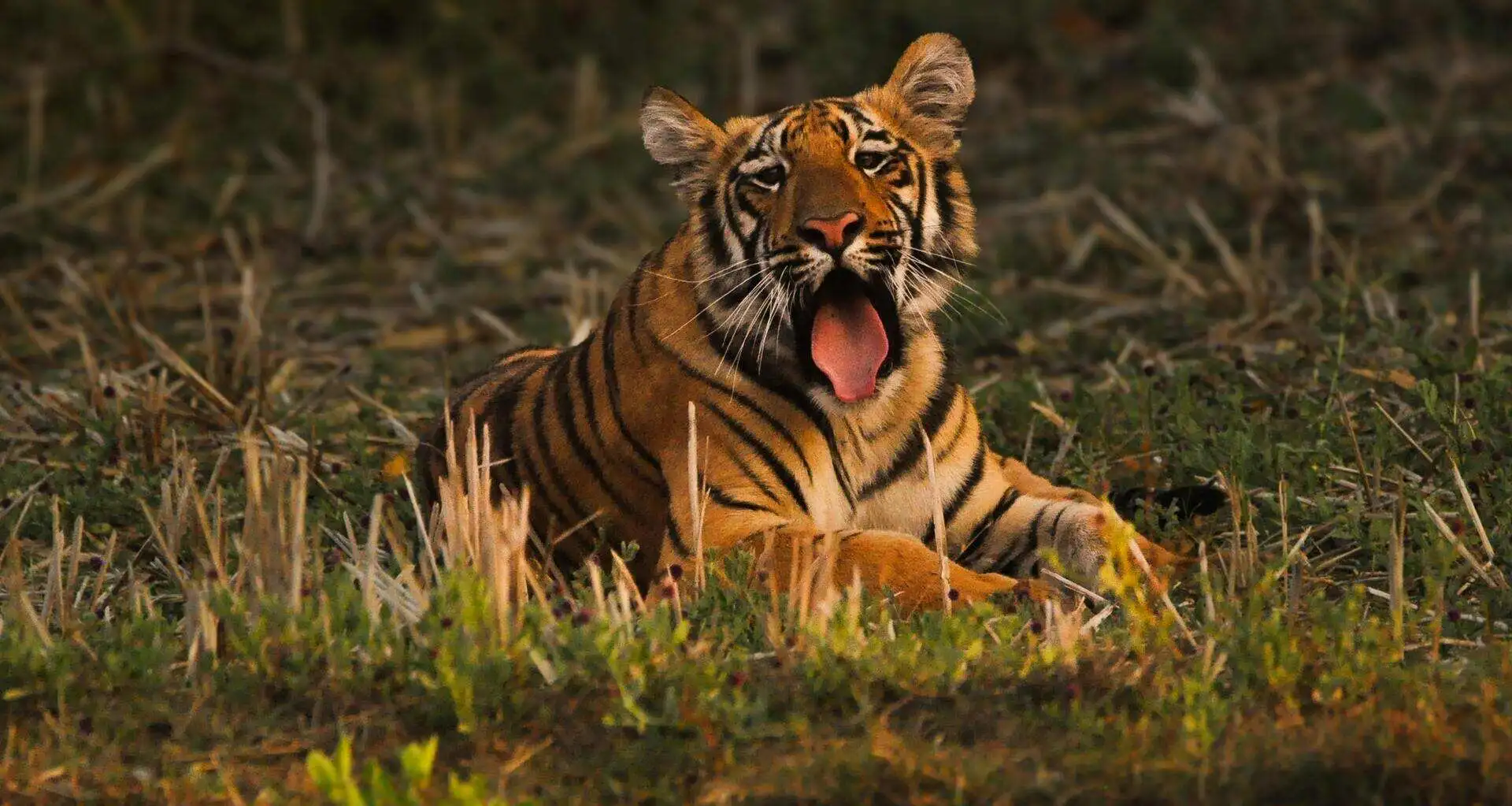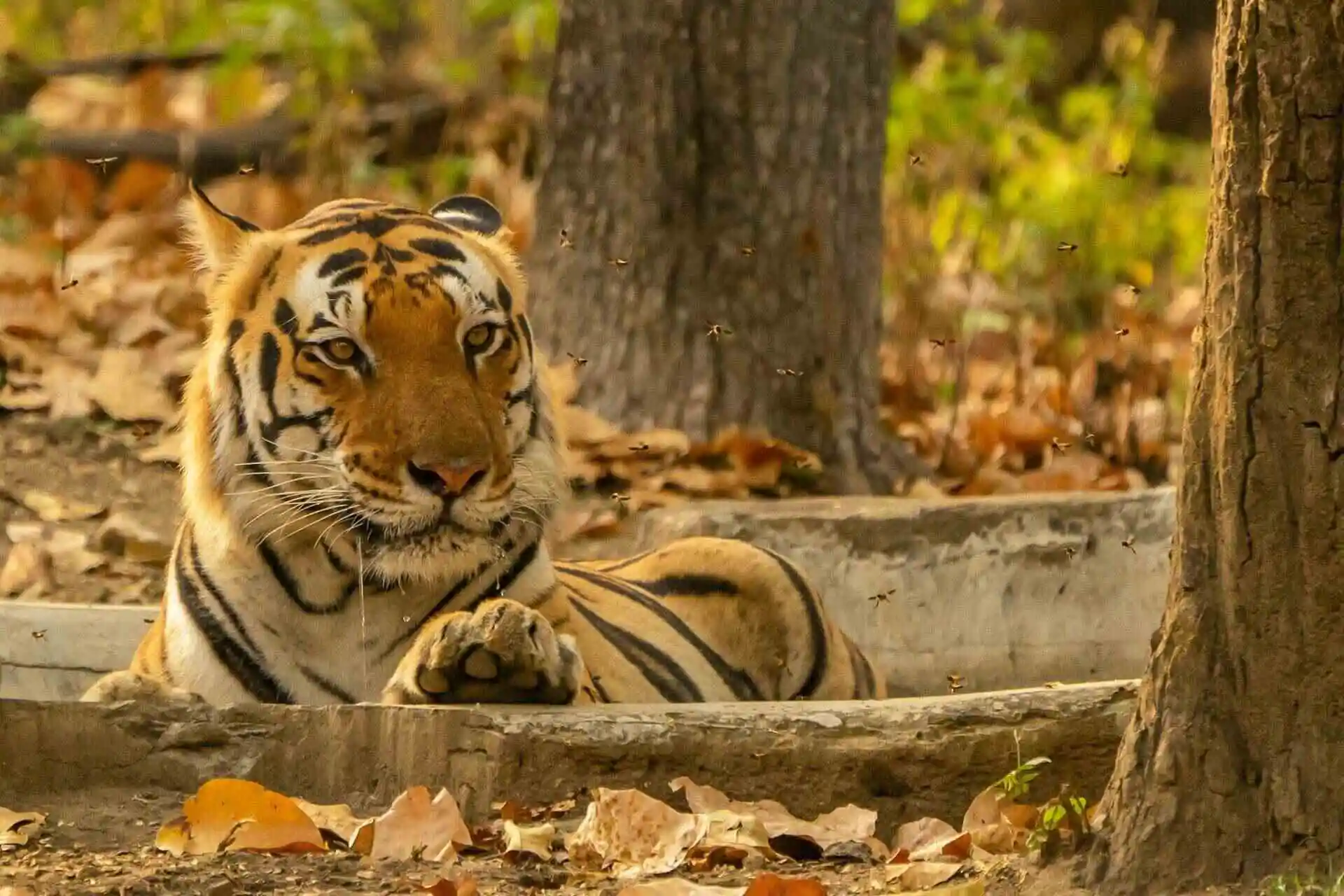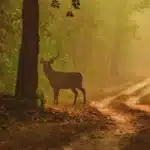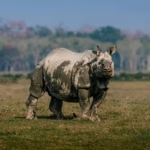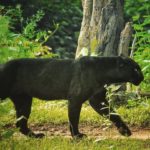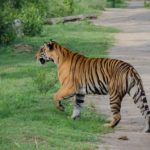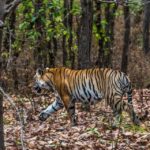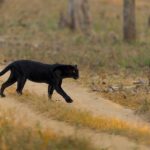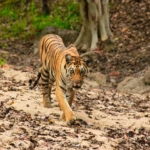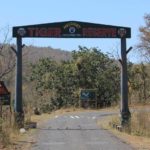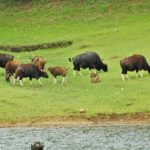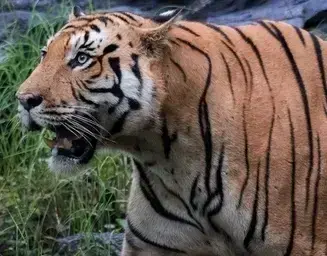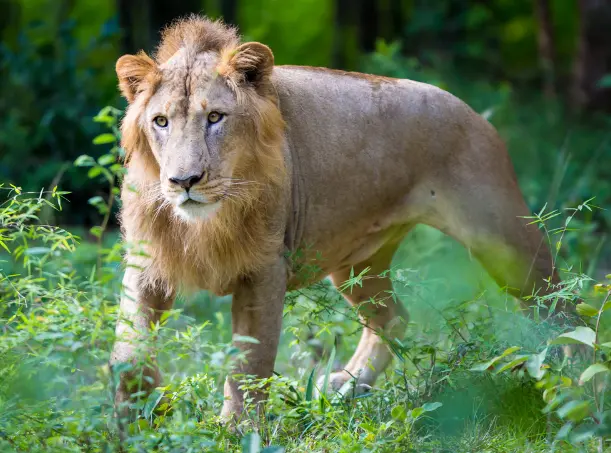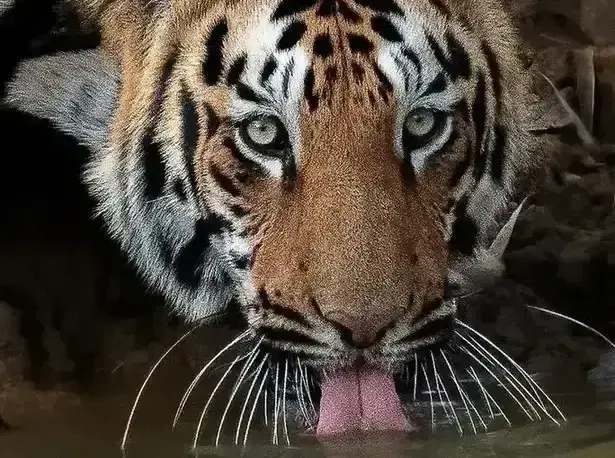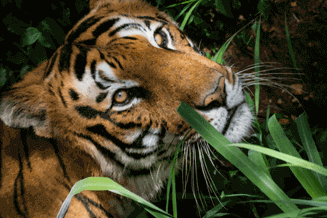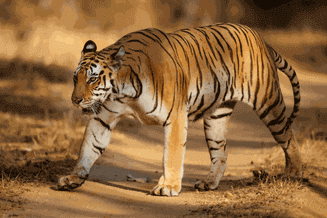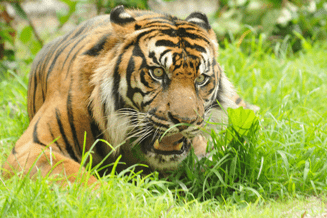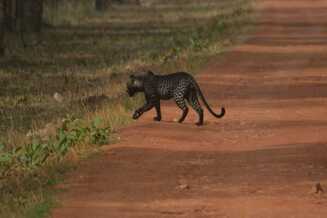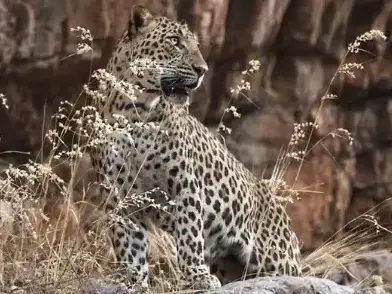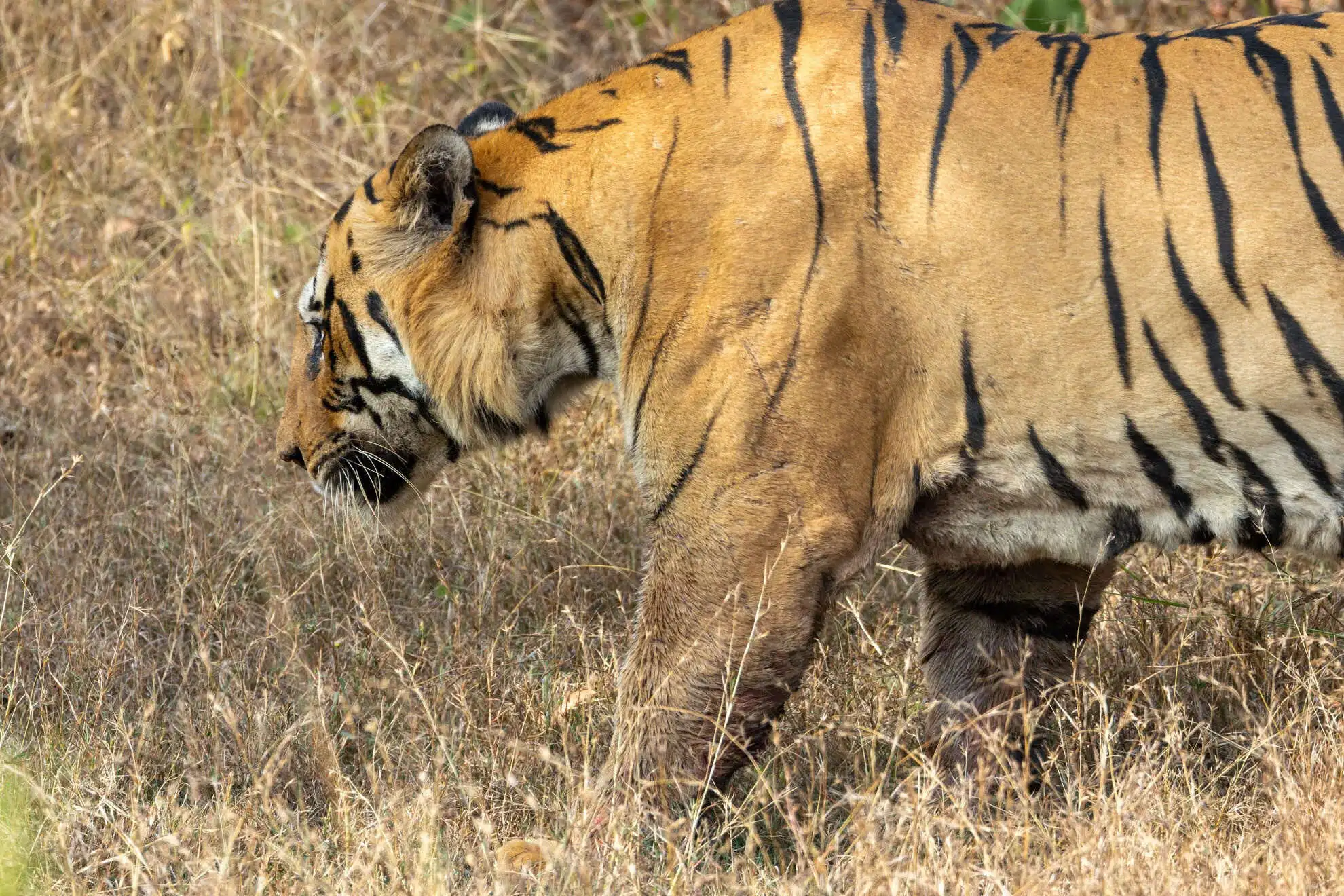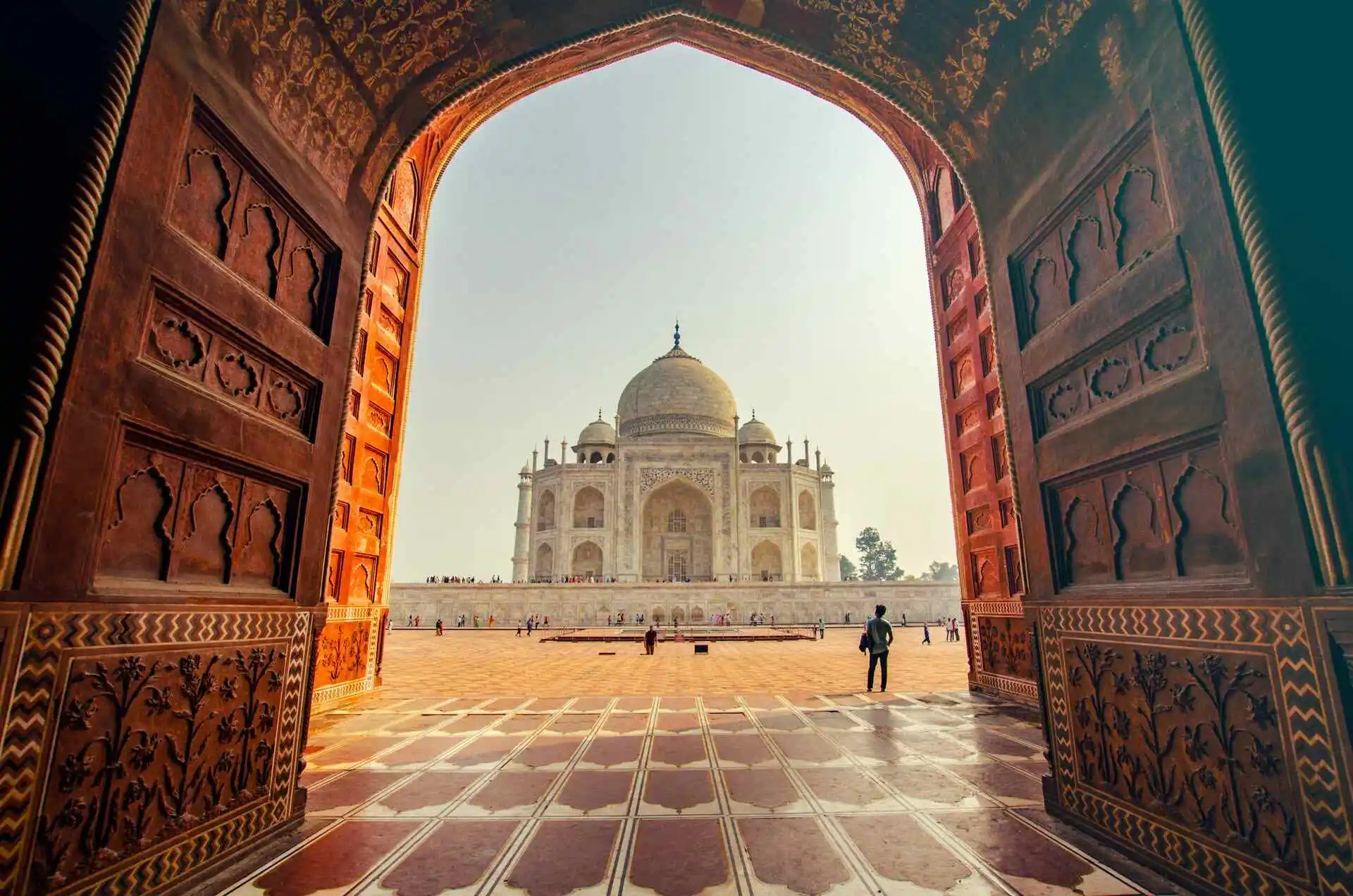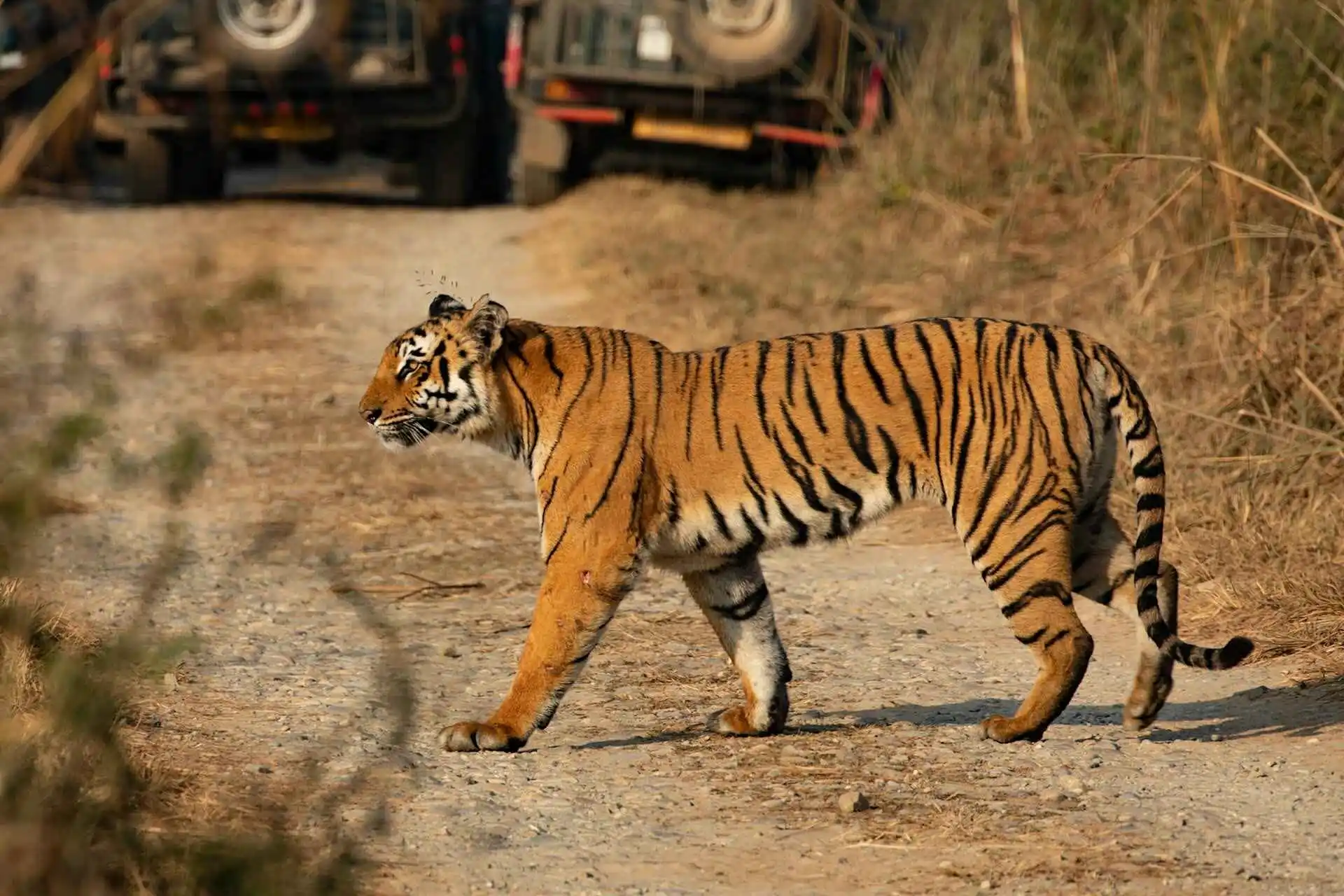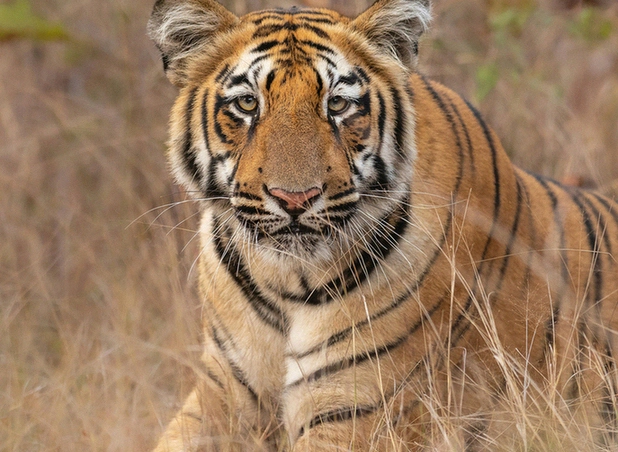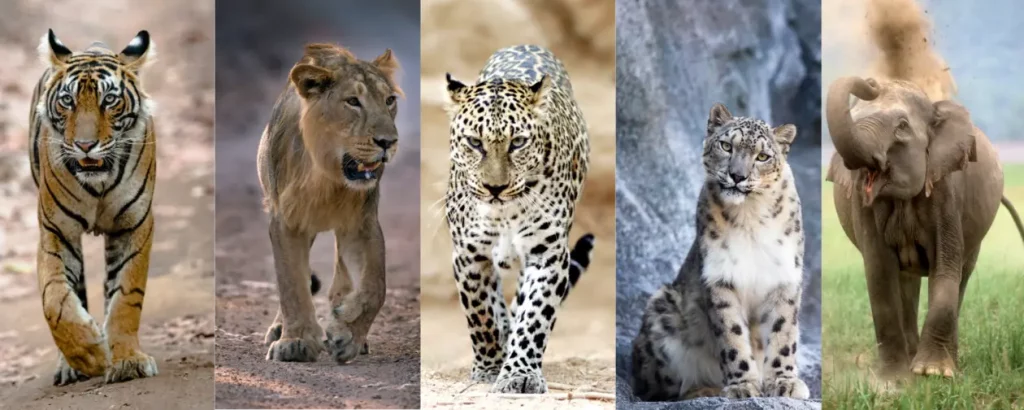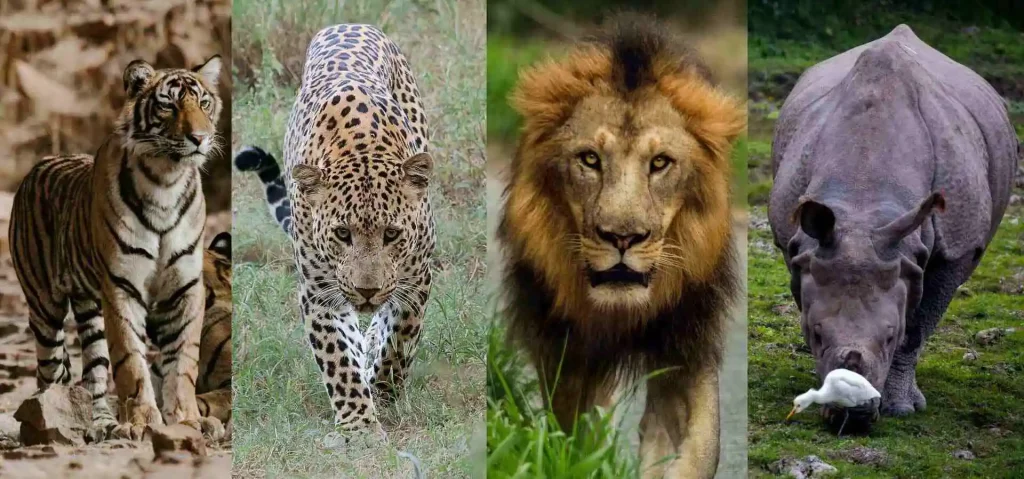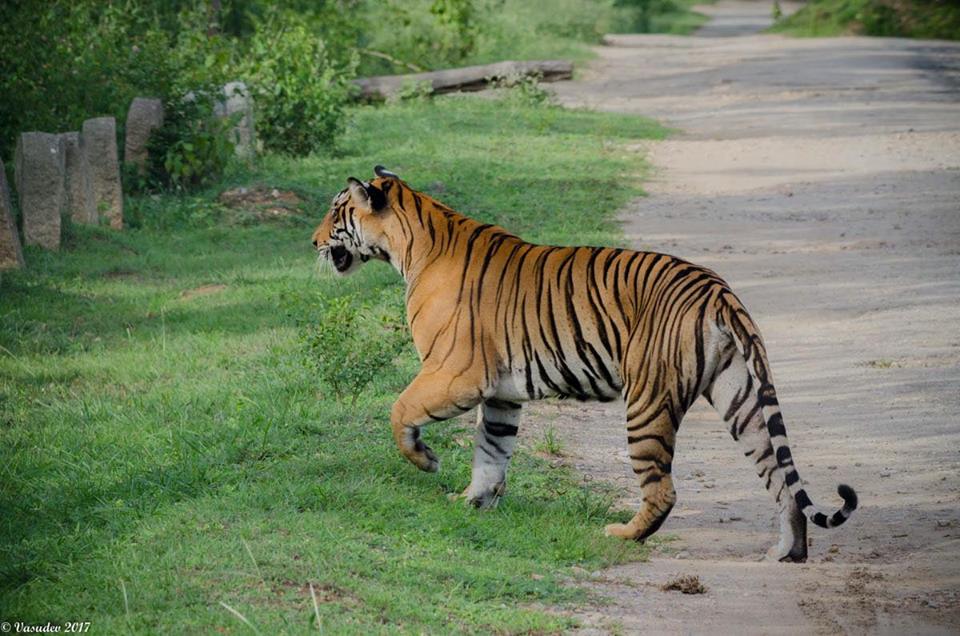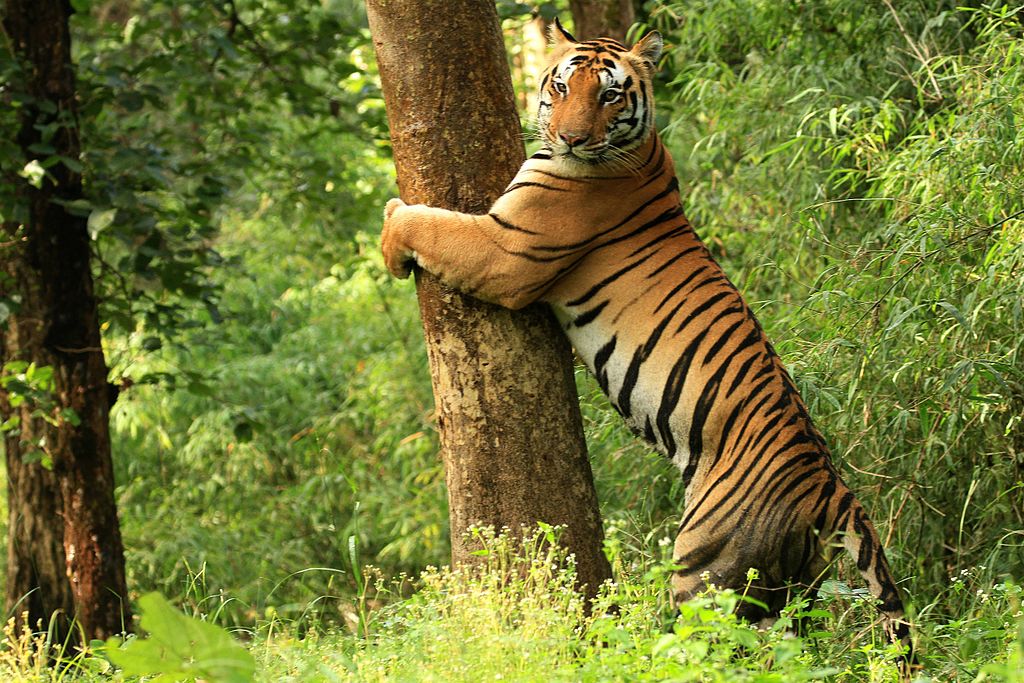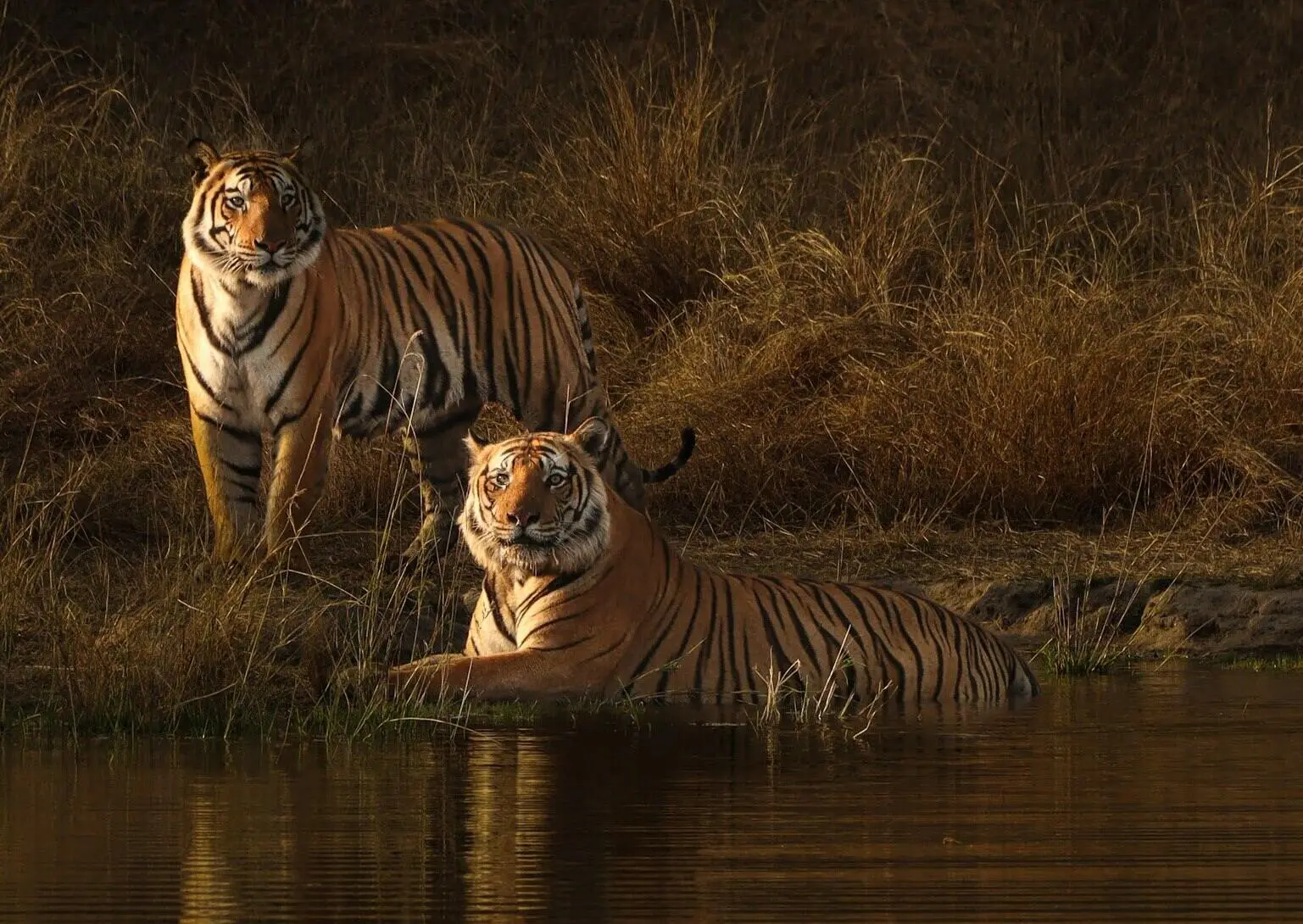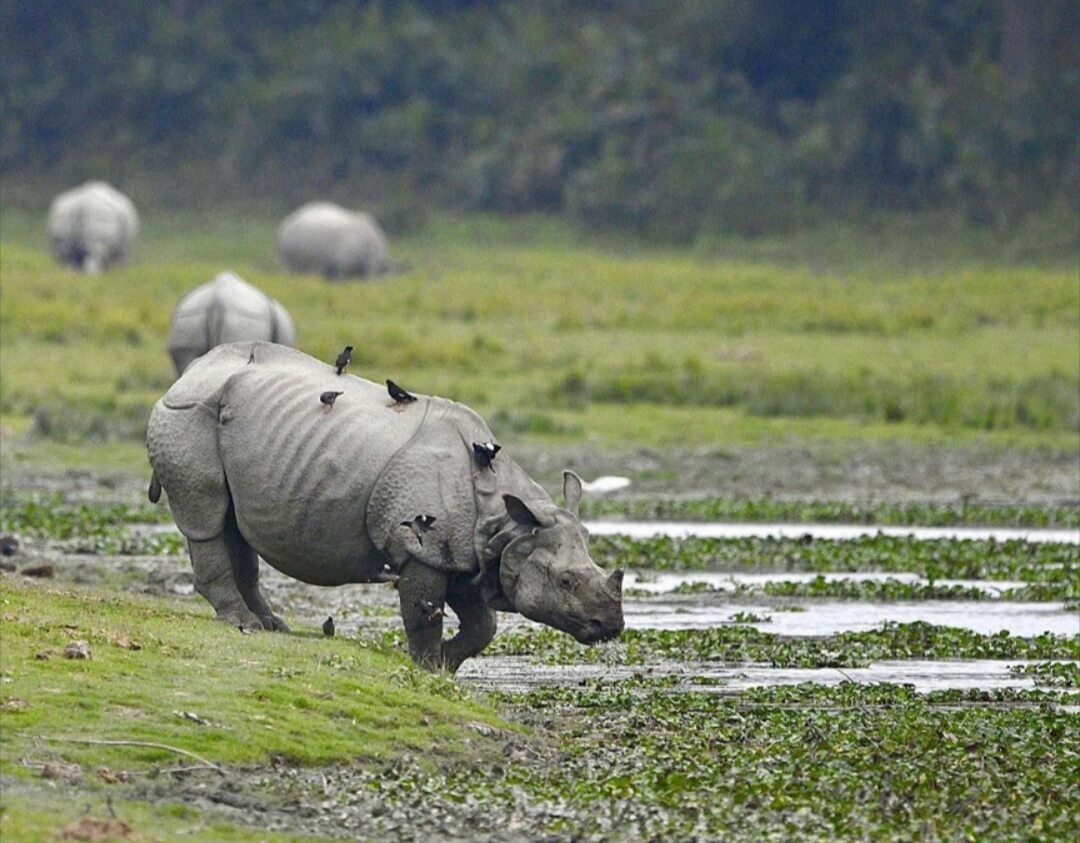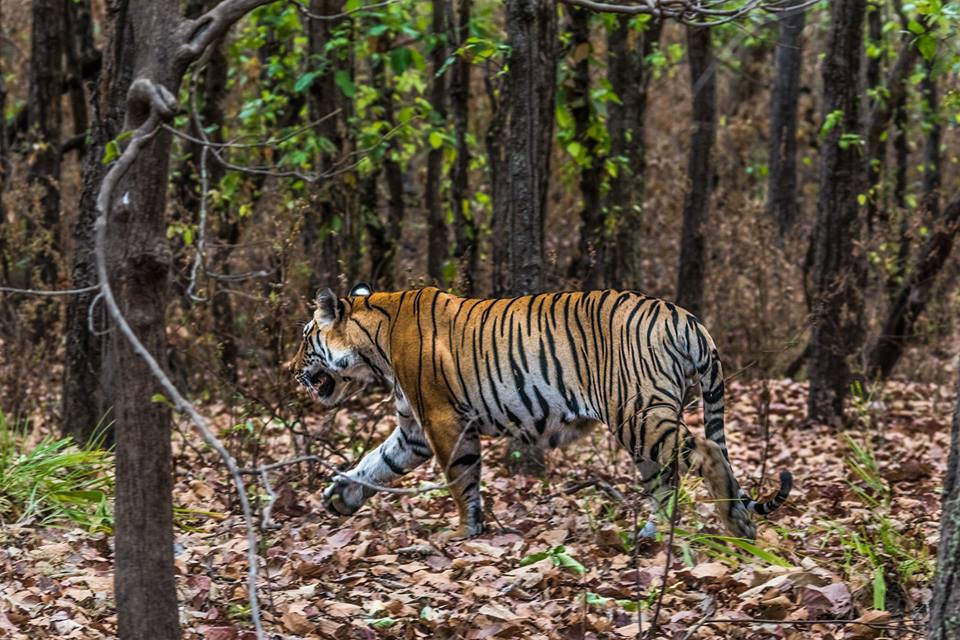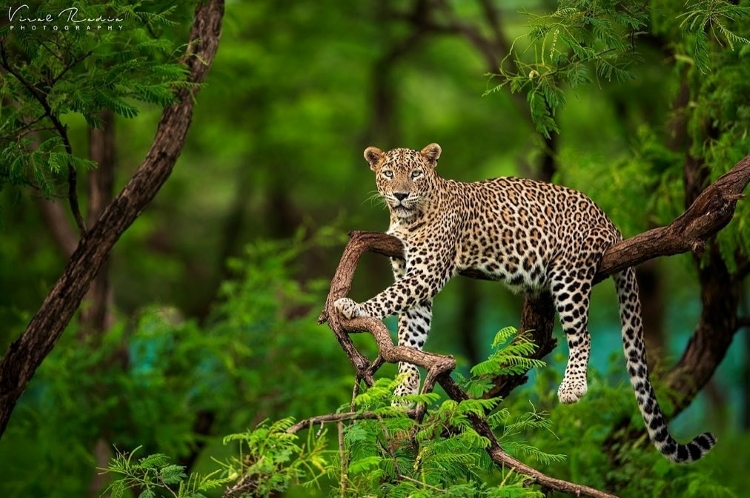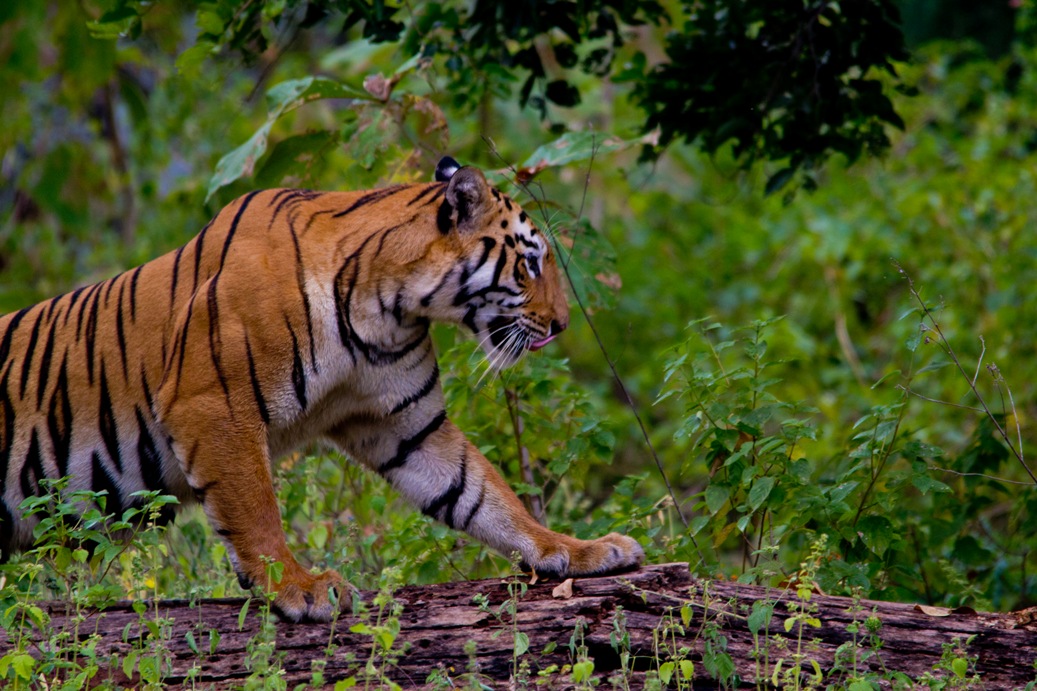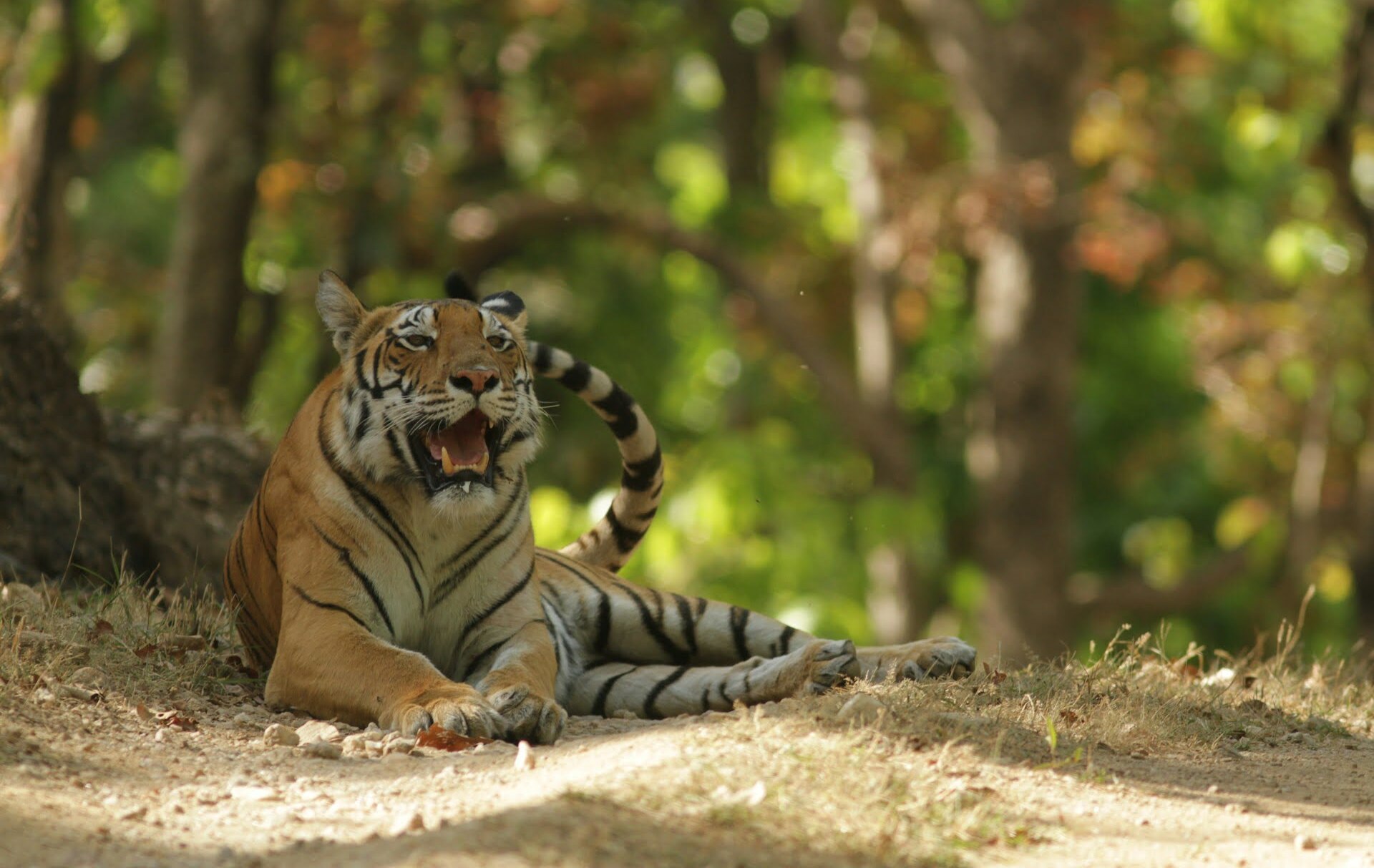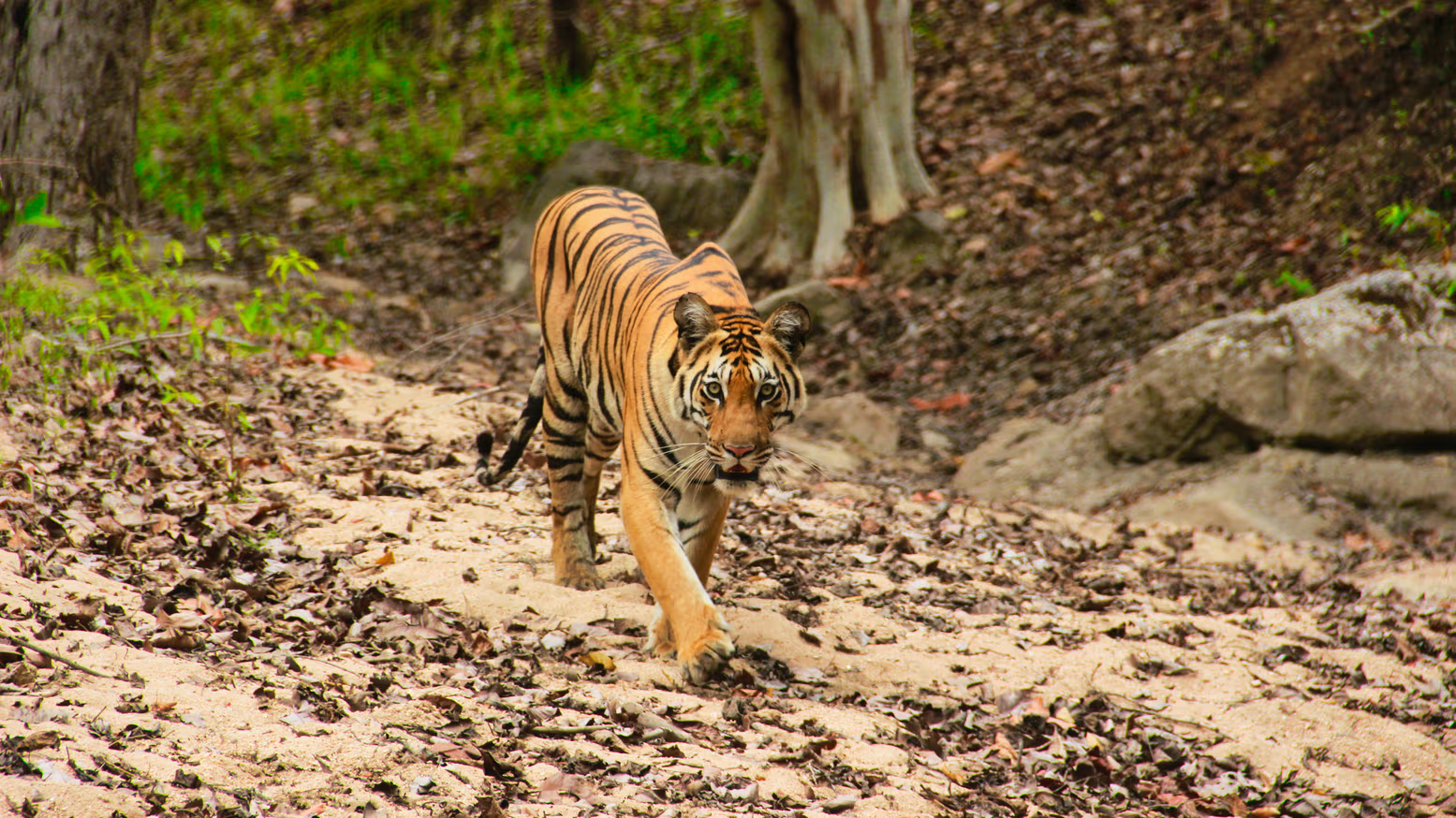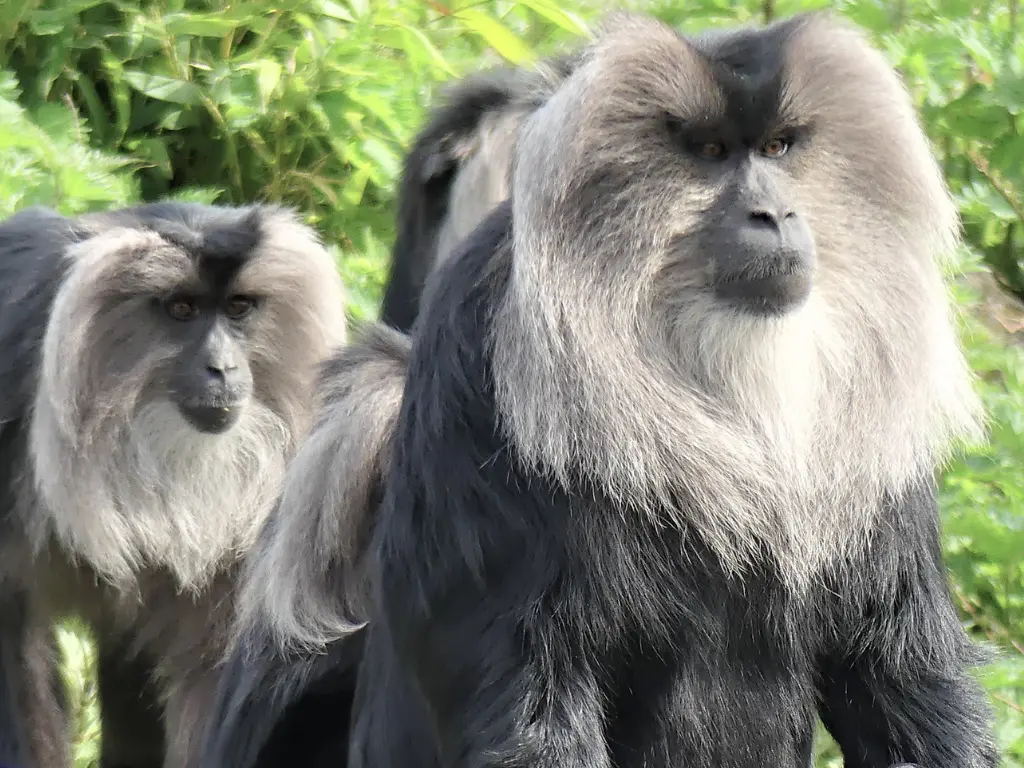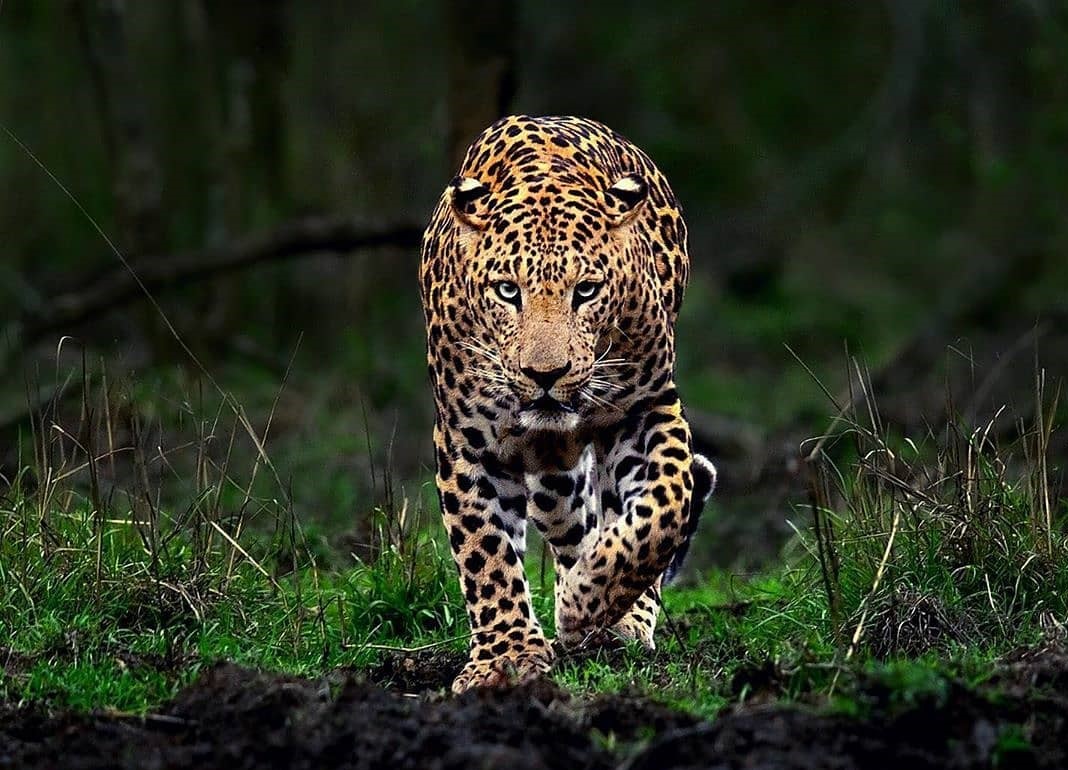Along with Royal Bengal Tiger, Asiatic Lions and Leopards, There is one more member of Big Cats Family who is very famous among wildlife lovers and photographers in India, “Black Panther”. There are many sanctuaries, reserves, and national parks where you can spot a Black Panther in India.
Black Panther is also known as Melanistic Leopard or “The Ghost of the Forest”, They generally prefer dense forest to stay and have
Spotting Black Panther in the wild is one of the top things to do for wildlife lovers and photographers.
Black Panther is one of the rarest to sight Big Cat in India and in the whole world.
Even though it is difficult to sight a Black Panther, You may spotBlack Panthers in India in a few wildlife sanctuaries of Central India, Western Ghats & North East India.
Some interesting quick facts about Black Panther
| Feature | Description |
|---|---|
| Scientific Name | Panthera Pardus |
| Also Known As | Bagheera, Black Leopard |
| Family | Felidae Family |
| Weigh Between | 50 - 90 kg |
| Length | 7 - 8 Feet |
| Speed | 58 - 60 km/hr |
Popular Safari Tours where you can spot Black Panther
Which is the best place to see a Black Panther in India?
The best place to see a Black Panther is Kabini in Karnataka, followed by Tadoba in Maharashtra and Pench in Madhya Pradesh.
Wildlife Sanctuaries in India to Spot a Black Panther
Though India does not have a very healthy population of Black Panthers, but you may be able to spot a black panther in one of the below-mentioned national parks and wildlife sanctuaries if you are lucky enough.
- Pench National Park
- Kabini Wildlife Sanctuary
- Dandeli Wildlife Sanctuary
- Bhadra Wildlife Sanctuary
- Tadoba Andhari Tiger Reserve
- Manas National Park
- Nagarhole National Park
Explore our Guide on How to Plan Leopard Safari in India
There are a few more sanctuaries in India where Black Panthers have been spotted in the past, They are Periyar Wildlife Sanctuary, Mhadei Wildlife Sanctuary, Nagarhole National Park, and a few more.
While India has its own elusive melanistic leopards, you can also find black panthers in the dense forests of Africa. Explore Black Panther sightings in Africa
Pench National Park
Recently, Pench National Park’s Khawasa zone has continued to draw attention as a strong area for black leopard sightings. One of the latest confirmed sightings was at Mogarkasa Gate on 3 July 2025.
Observers report that a melanistic leopard cub often seen in Khawasa may be the offspring of a previously sighted adult, though this has not been confirmed.
Possibility of Spotting Black Panther: 50%-60% (Low to Moderate)
Fauna: Tigers, Leopards, Wild Dogs, Sloth Bears, Gaur, Sambar, Spotted Deer, over 300 bird species.
Best Time to Visit Pench: October to June. Khawasa buffer stays open in monsoon.
How to Reach Pench: Nearest airport/railway is Nagpur (90 km). Jabalpur (200 km) is another option.
Best Zones to Spot Black Panther: Khawasa buffer and Mogarkasa Gate are active for sightings.
Plan your trip to Pench with Big Cats India to witness the beautiful melanistic leopard in the wild.
Kabini Wildlife Sanctuary
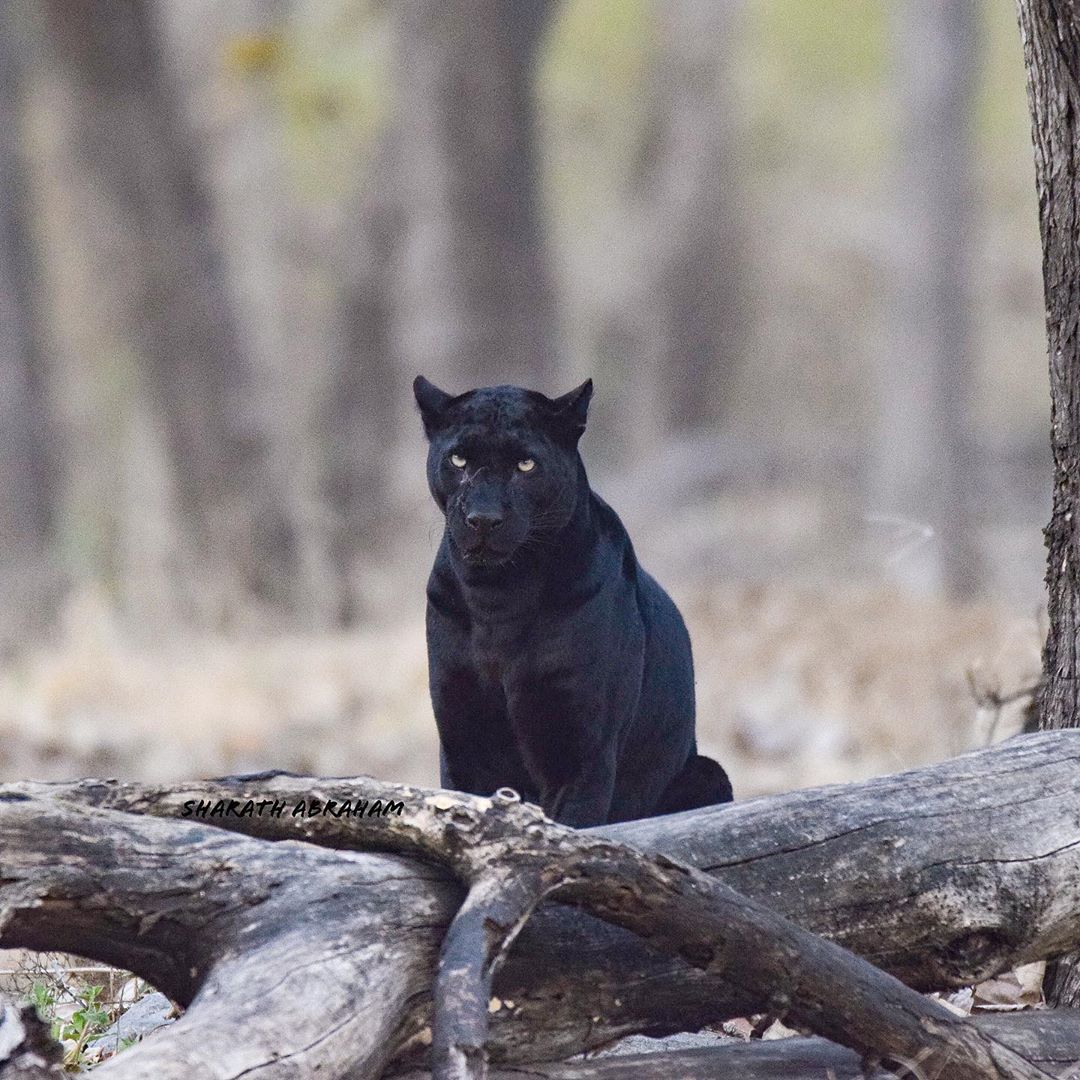
Black Panthar, Kabini Wildlife Sanctuary
Img Credit@Sharath
Kabini wildlife sanctuary is one of the most famous and best places to spot a Black Panther in Karnataka and in India. Kabini’s dense bush makes it the favorite place for Black Panther to reside.
Possibility of Spotting Black Panther: 70%-80% (High)
Fauna: Elephants, Tigers, Leopards, Wild Dogs, Gaur, Sambar, Crocodiles, and many birds.
Best Time to Visit Kabini: March & April when the jungle is neither too dense nor completely dry.
How to Reach Kabini: Nearest airport is Mysore (60 km) or Bangalore (220 km). 90-minute drive from Mysore.
Best Zones to Spot Black Panther: Kabini backwaters and Antharasanthe range are hotspots for sightings.
Dandeli Wildlife Sanctuary
Along with birds, Dandeli Wildlife Sanctuary is also famous for the rarest Black Panther in Karnataka. Also, Dandeli is the only Tiger Reserve where Black Panther has been seen frequently, which makes it one of the favorite places for Black Panther lovers.
Possibility of Spotting Black Panther: 40%-50% (Low to Moderate)
Fauna: Tigers, Leopards, Elephants, Sloth Bears, Malabar Giant Squirrel, Hornbills, Crocodiles.
Best Time to Visit Dandeli: You can visit the Dandeli wildlife sanctuary year-round, but to spot Melanistic Leopard you can plan your visit between January and April
How to Reach Dandeli: Hubli airport (75 km), Belgaum airport (90 km). Dharwad railway station (55 km).
Best Zones to Spot Black Panther: Dense forest patches in Anshi-Dandeli Tiger Reserve.

Black Panther Image
Img Credit@Bharath and Shreyas
Bhadra Wildlife Sanctuary
Bhadra Wildlife Sanctuary is yet another home for this Black Big Cat in Karnataka. Along with Black Panther, Bhadra WLS is also home to Royal Bengal Tiger, Elephants, Gaur, Sambar, Chital, and Wild boar.
Possibility of Spotting Black Panther: 30%-40% (Low)
Fauna: Tigers, Leopards, Elephants, Wild Dogs, Sloth Bears, Gaur, Sambar, Peafowl, and raptors.
Best time to visit Bhadra to spot this Ghost of the Jungle is during summer when most of the animals come close to the water bodies for water.
How to Reach Bhadra: Mangalore airport (185 km), Shimoga railway station (38 km). Good road connectivity.
Best Zones to Spot Black Panther: Lakkavalli and Hebbe ranges.
Tadoba Andhari Tiger Reserve
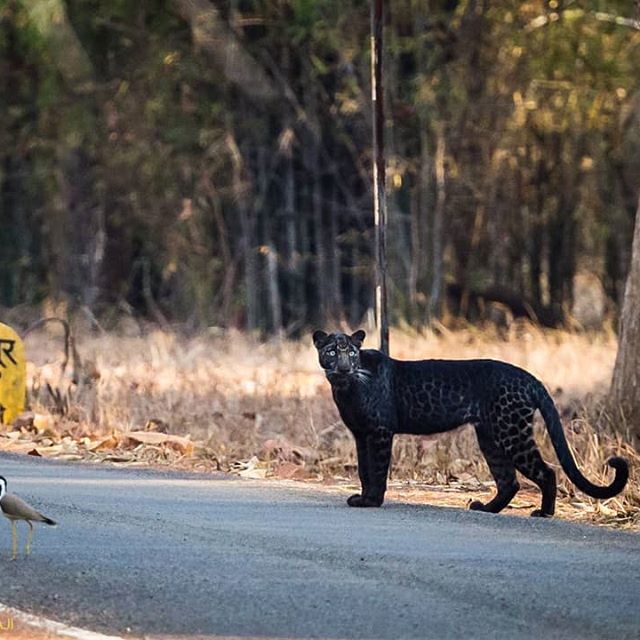
Black Panther – Tadoba, img source
Tadoba is one of the most visited and favorite Tiger Reserves among Big Cats lovers. That’s because of the presence of a lot of Big Cats and other rare animals. One more reason that makes this reserve more important and lovable is the presence of the Black Panther or Melanistic Leopard.
Latest Black Panther Sighting in Tadoba: 20 June 2025 – Pangadi Gate
Best time to visit: Tadoba can be visited from October to June, but the best time to visit Tadoba Tiger Reserve is from December to June.
Possibility of Spotting Black Panther: 50%-60% (Low to Moderate)
Fauna: Tigers, Leopards, Sloth Bears, Wild Dogs, Hyenas, Spotted Deer, Barking Deer, Crocodiles.
How to Reach Tadoba: Nagpur airport (140 km). Chandrapur railway station (45 km).
Best Zones to Spot Black Panther: Pangadi Gate and Moharli ranges have recent confirmed sightings.
Manas National Park
Located in the foothills of the Great Himalayas, Manas National Park is one of the most remarkable places in India to spot a Black Panther. Recently, in March 2025, two black panthers were seen crossing a road in the Banhbari range, making it one of the most talked-about sightings this year.
Manas is not only a Black Panther destination but also a UNESCO World Heritage Site, a Tiger Reserve, an Elephant Reserve, and a Biosphere Reserve, making it a true haven for wildlife and nature lovers.
Possibility of Spotting Black Panther: 20%-30% (Low)
Fauna: Tigers, Elephants, Wild Buffalo, Golden Langur, Clouded Leopard, Hornbills, 450+ bird species.
Best time to visit: November to June is the most favorable period for wildlife sightings, including the elusive melanistic leopard.
How to Reach Manas: Guwahati airport (176 km), Barpeta Road railway station (40 km). Good road access.
Best Zones to Spot Black Panther: Banhbari and Bhuyanpara ranges. Recent sightings reported March 2025.
Nagarhole National Park
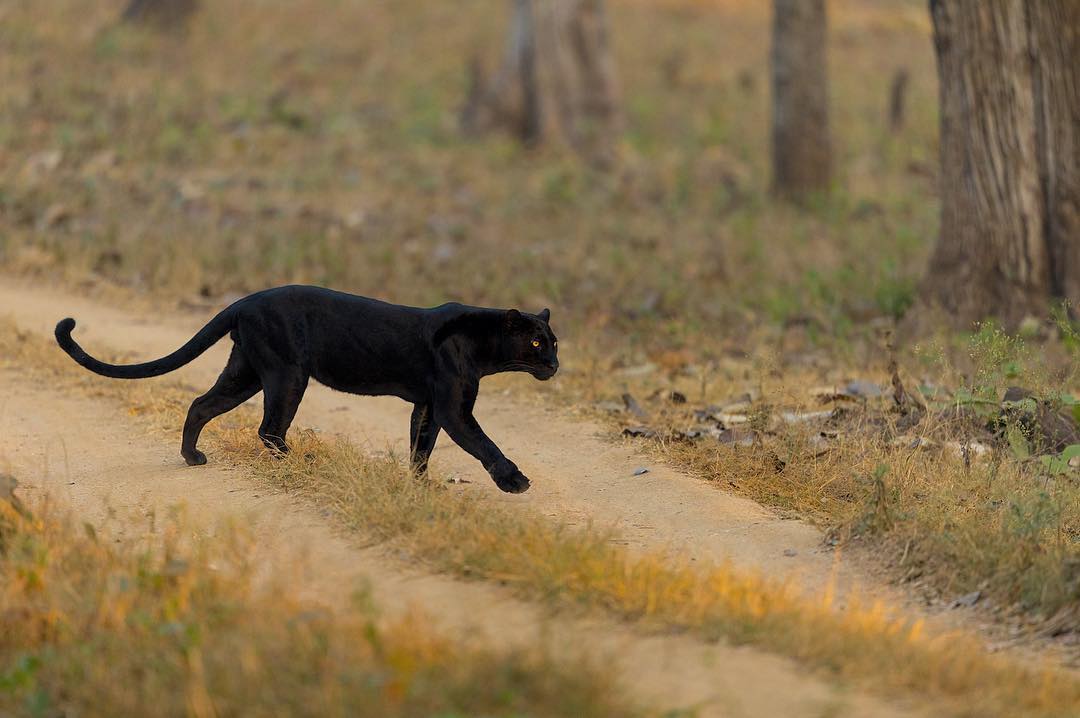
Black Panther in Karnataka
Nagarhole is yet another National Park, and a Tiger Reserve of Karnataka and also home to rare Black Panthers. It is one of the favorite destinations of wildlife lovers for spotting a Black Panther in India. Nagarhole is also a part of the Nillgiri Biosphere and a prime national park in Karnataka.
Possibility of Spotting Black Panther: 40%-50% (Low to Moderate)
Fauna: Tigers, Leopards, Elephants, Wild Dogs, Gaur, Sambar, Spotted Deer, Crocodiles, Malabar Pied Hornbill.
Best time to visit: Nagarhole National Park can be visited during December to May for the best sighting.
How to Reach Nagarhole: Mysore airport (96 km), Bangalore airport (236 km). Mysore is nearest railhead.
Best Zones to Spot Black Panther: Kabini backwaters side and Antharasanthe ranges.
Fascinating Facts About Black Panthers
- Black Panthers are not a separate species; they are melanistic leopards with extra dark pigmentation.
- Their black coat helps them camouflage in dense forests, making them very elusive.
- The term “Black Panther” is used in India for melanistic leopards; in other regions it can refer to melanistic jaguars.
- They are solitary animals and are mostly active during the night (nocturnal).
Black Panthers have excellent eyesight and hearing, which helps them hunt in low-light conditions. - They can run at speeds of up to 58-60 km/hr for short distances.
Their length ranges from 7-8 feet including the tail, and they weigh between 50-90 kg. - Sightings in the wild are extremely rare, making them a dream for wildlife photographers.
- They usually inhabit dense forests, hilly regions, and areas with thick vegetation.
- Despite their dark color, if you look closely, you can still see the rosette patterns on their fur in sunlight.
Threats, Conservation Status, and Current Population of Black Panthers
Black Panthers are melanistic leopards, not a separate species, so their conservation aligns with the Indian Leopard (Panthera pardus fusca).
Threats
- Habitat loss due to deforestation, agriculture, and urban expansion.
- Poaching for skin, bones, and other body parts.
- Human-wildlife conflict, as leopards sometimes enter villages searching for prey.
- Decline in prey species, making hunting harder in some forests.
Conservation Status
- Classified as “Vulnerable” on the IUCN Red List.
- Protected under Schedule I of the Wildlife Protection Act, 1972.
- Found in national parks, wildlife sanctuaries, and buffer zones with active anti-poaching measures.
What is the population of Black Panthers in India?
The population of Black Panthers, which are melanistic leopards, is very small compared to the total leopard population. Estimates suggest there are around 720 to 1,540 Black Panthers across India, making them extremely rare and elusive.
Conservation Efforts
Camera traps, strict forest protection, and awareness programs are helping protect these elusive cats. Key refuges include Kabini, Pench, Tadoba, and Manas.
Where to See Black Panthers in India: Quick Comparison Table
| Place | Spoting Possibility | Best Time | Accessibility |
|---|---|---|---|
| Pench National Park (Madhya Pradesh / Maharashtra) | 50%-60% (Low to Moderate) | October - June | Nearest airport/railway: Nagpur (90 km), Jabalpur (200 km) |
| Kabini Wildlife Sanctuary (Karnataka) | 70%-80% (High) | March - April | Nearest airport: Mysore (60 km), Bangalore (220 km); 90-min drive from Mysore |
| Dandeli Wildlife Sanctuary (Karnataka) | 40%-50% (Low to Moderate) | January - April | Hubli airport (75 km), Belgaum airport (90 km), Dharwad railway (55 km) |
| Bhadra Wildlife Sanctuary (Karnataka) | 30%-40% (Low) | March - May | Mangalore airport (185 km), Shimoga railway (38 km) |
| Tadoba Andhari Tiger Reserve (Maharashtra) | 50%-60% (Low to Moderate) | December - June | Nagpur airport (140 km), Chandrapur railway (45 km) |
| Manas National Park (Assam) | 20%-30% (Low) | November - June | Guwahati airport (176 km), Barpeta Road railway (40 km) |
| Nagarhole National Park (Karnataka) | 40%-50% (Low to Moderate) | December - May | Mysore airport (96 km), Bangalore airport (236 km); Mysore nearest railhead |
Best Time to Visit India to Spot Black Panthers
The best time to spot Black Panthers across India is from October to June. During this period, the forests are dry enough to improve visibility while still providing good cover for wildlife.
Early morning and late evening safaris are usually the most productive, as Black Panthers are mostly active during low light.
Visiting during these months increases your chances of sightings in Central India, Western Ghats, and Northeastern forests.
Tips for Tourists to Maximize Black Panther Sightings
Visit Multiple Parks: Try exploring 2-3 key national parks to improve your chances. Good options include Pench, Tadoba, and Kabini, which offer rich wildlife and higher Black Panther activity.
Plan Your Stay: Spend 3-5 days at each park. Black Panthers are elusive, so longer stays give you more opportunities to encounter them in their natural habitat.
Hire an Experienced Guide: Engage a local naturalist who understands the behavior and movement patterns of Black Panthers. Their expertise can make the difference between spotting one or missing it entirely.
Time Your Safaris: Early mornings and late evenings are the most active hours for Black Panthers. Plan your drives around these periods for better chances.
Patience and Observation: Black Panthers blend into dense forests. Staying alert, quiet, and patient is essential for spotting these rare cats.
Stay Near Active Zones: Choose accommodations near buffer zones or hotspot ranges like Khawasa in Pench or Antharasanthe in Kabini to maximize sightings.
Check Recent Sightings: Keep updated on latest wildlife reports or local safari updates, as Black Panther activity varies across seasons and zones.

